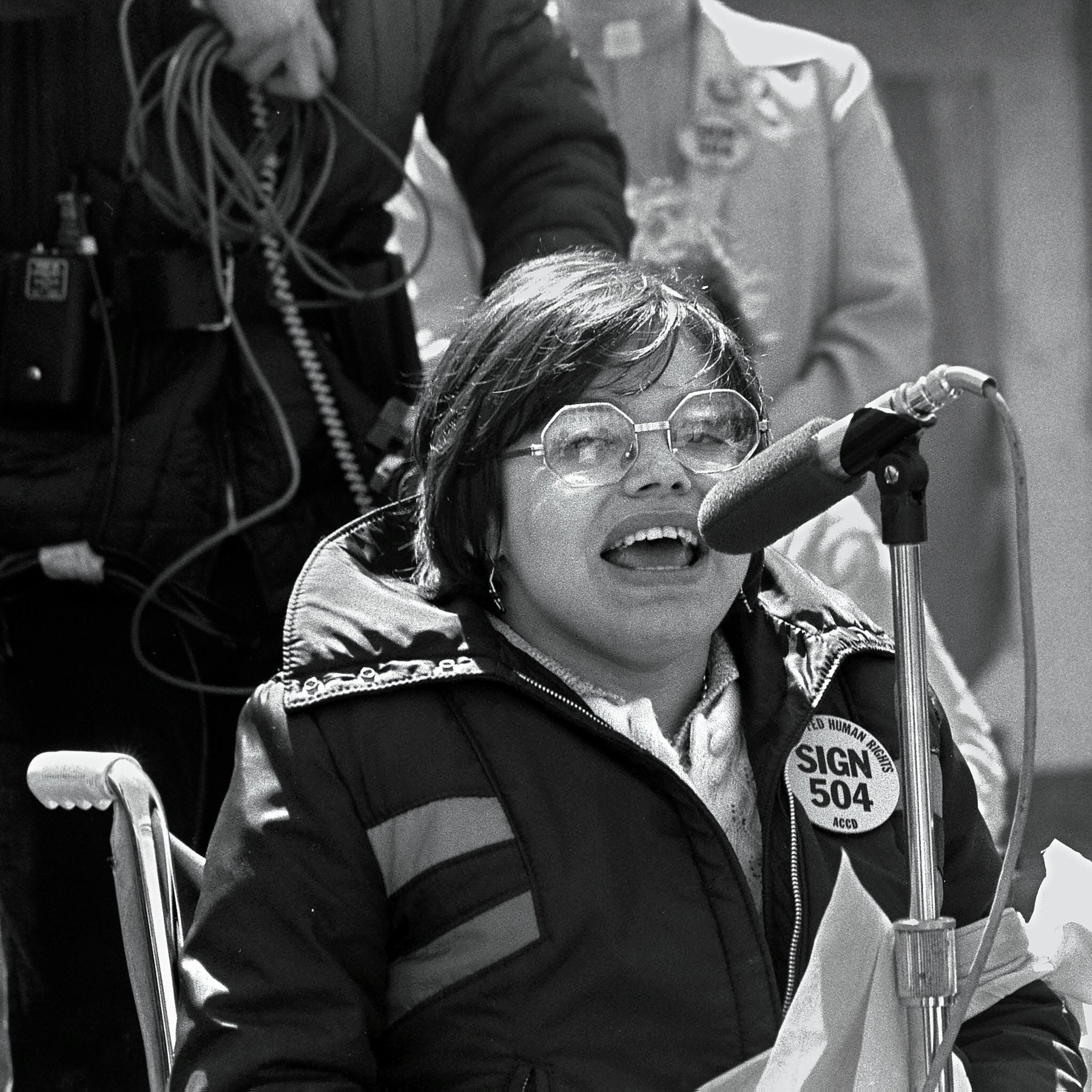Judy Heumann
Story Consultant, In Memoriam
A note from the Co-Directors: In 2021, Judy watched an early cut of the film and agreed to take a call with us to discuss the project. We were nervous: “This is Judy Heumann we were talking to and if she doesn’t like this film she’s definitely going to tell us!” Instead, Judy became one of our most ardent allies and supporters. It was not uncommon in challenging moments for us to say to one another: “Well, we’re not sure how this is going to work out, but with Judy on our side, we can’t fail.” It is with heavy hearts that we must accept that she will not be at the premiere of this film or the many public conversations around it that we’d strategized together to further the discussion around disability representation in the media. She was a force to be reconned with and we will be forever thankful for the brief, but invaluable, time when we had such a “badass” advocate in our corner. - Ned Castle & Matt Day, Co-Directors
Judy Heumann is an internationally recognized bad-ass leader in the disability rights community. She was a founding member of the Berkeley Center for Independent Living which was the first grassroots center in the United States and helped to launch the Independent Living Movement both nationally and globally.
In 1983, Judy co-founded the World Institute on Disability (WID) with Ed Roberts and Joan Leon. From 1993 to 2001, Judy served in the Clinton Administration as the Assistant Secretary for the Office of Special Education and Rehabilitative Services in the Department of Education. Judy then served as the World Bank's first Adviser on Disability and Development from 2002 to 2006. President Obama appointed Judy as the first Special Advisor for International Disability Rights at the U.S. Department of State, where she served from 2010-2017.As Senior Fellow at the Ford Foundation (2017-2019), she wrote “Road Map for Inclusion: Changing the Face of Disability in Media.”
